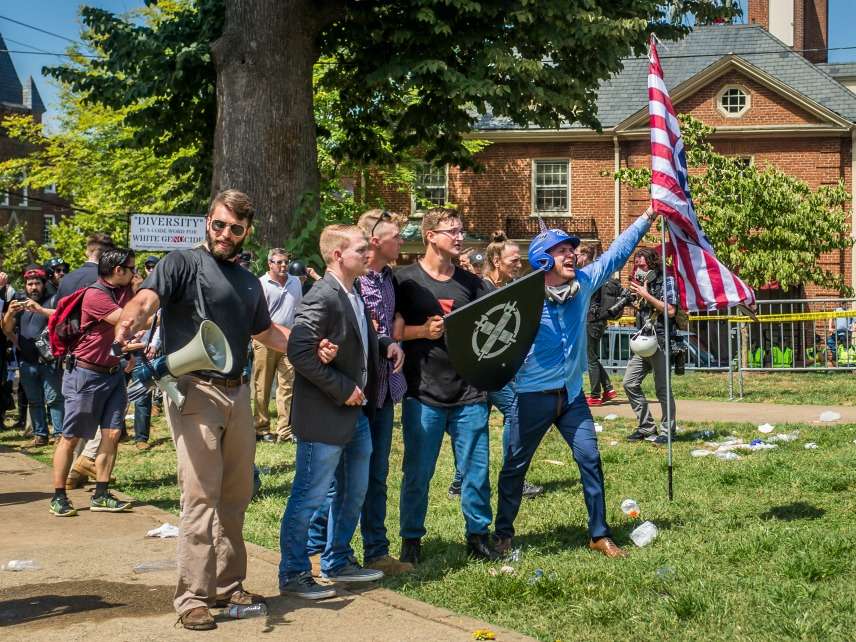A 'Broader' Understanding of the First Amendment That Excludes Right-Wing Racists
An ACLU critic argues that the group must forsake freedom of speech in order to save it.

In the wake of last weekend's violence in Charlottesville, the American Civil Liberties Union is facing a backlash from people dismayed that an organization dedicated to defending freedom of speech thinks that mission includes defending the right of white supremacists to hold a rally in a public park. Some of the ACLU's critics mistakenly claim that "hate speech" is not protected by the First Amendment. K-Sue Park, a critical race studies fellow at UCLA, takes a more nuanced (or maybe just more confusing) position, arguing that the ACLU's reading of the First Amendment is too "narrow," by which she means it is too broad.
Writing in The New York Times, Park argues that the ACLU gives short shrift to barriers that prevent people of color from participating in democratic debate even if they theoretically have the right to do so. "The hope is that by successfully defending hate groups, [the ACLU's] legal victories will fortify free-speech rights across the board," writes Park, who worked for the organization as a law student. "While admirable in theory, this approach implies that the country is on a level playing field, that at some point it overcame its history of racial discrimination to achieve a real democracy, the cornerstone of which is freedom of expression."
Not so, says Park, since "the power of speech remains proportional to wealth," while "police intimidation of African-Americans and Latinos" persists. Because of "structural discrimination and violence," she says, "the legal gains on which the A.C.L.U. rests its colorblind logic have never secured real freedom or even safety for all." Instead of defending the First Amendment rights of racists and corporations, Park argues, the ACLU should "imagine a holistic picture of how speech rights are under attack right now" and "research how new threats to speech are connected to one another and to right-wing power."
One way speech rights are under attack right now (as always) is the argument that they should not apply to disfavored speakers, who from Park's perspective include right-wing racists and people organized as corporations. By asking the ACLU to think about freedom of speech "in a broader context," she is actually asking the ACLU to abandon the principle altogether. The whole point of the principle is that it applies regardless of who you are or what you are saying. If the ACLU gave up its "colorblind logic" and started using racial and ideological filters to pick First Amendment cases, it would no longer be defending freedom of speech; it would be defending the interests of particular social and political groups.
Freedom of speech does not require the "level playing field" of Park's dreams. It is obviously true that wealth helps people get their messages across. So do fame, good looks, and verbal felicity. But those advantages do not render freedom of speech a nullity, any more than applying the Fourth Amendment to mansions as well as shacks or guaranteeing due process to rich as well as poor defendants makes those protections meaningless. To the contrary, legally guaranteed rights matter most to people without the social and political connections that might provide protection from official harassment.
The right to speak your mind without fear of punishment may not translate into the "real freedom" or "safety for all" that Park wants, but it is still instrinsically and instrumentally valuable, and the strength of that right depends on its consistent application. That is why the ACLU's First Amendment victories do in fact "fortify free-speech rights across the board."


Show Comments (124)